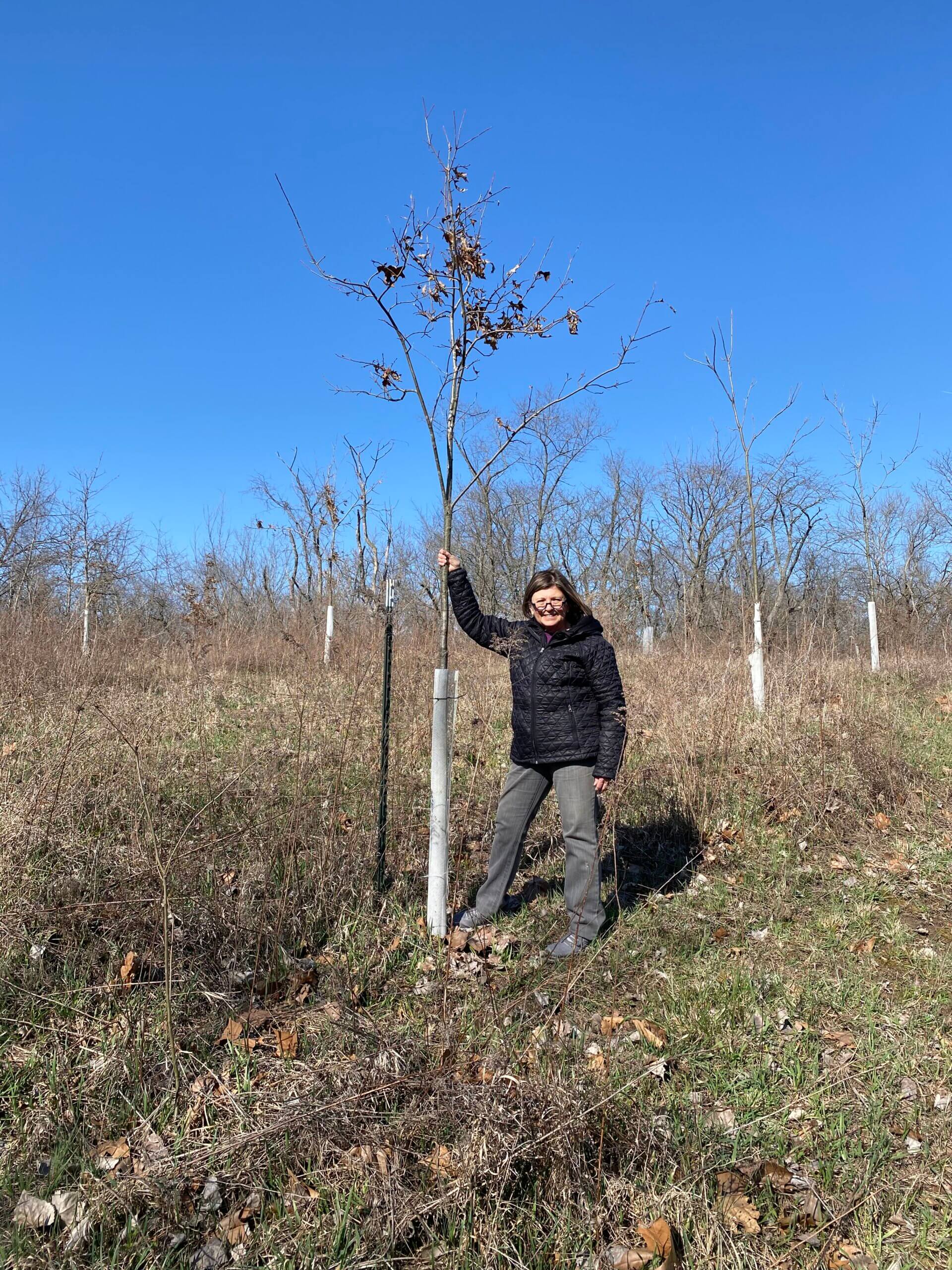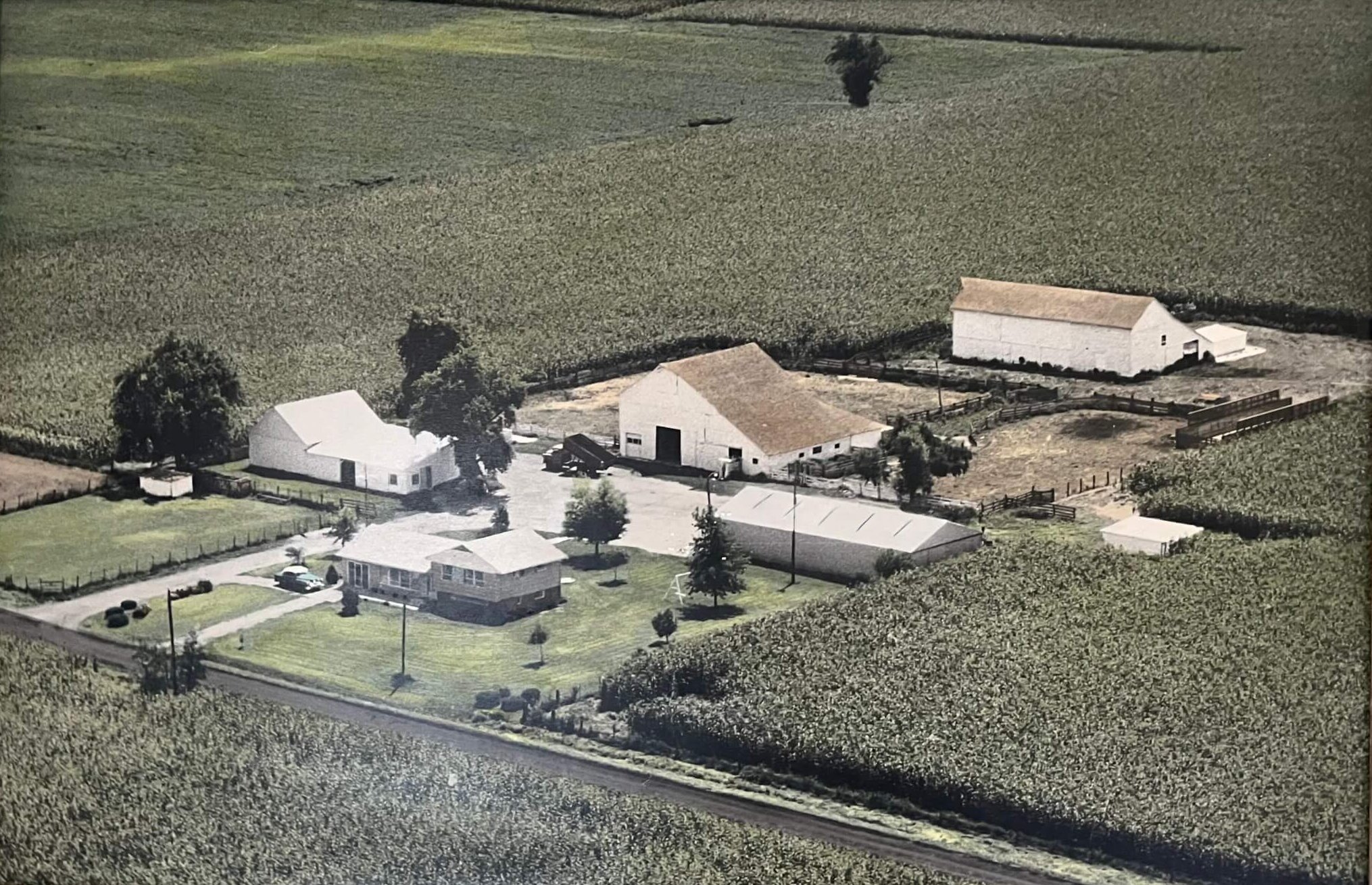Shifting the Tide in Illinois
A Lifelong Educator Embraces Wind Energy
In rural Macoupin County, Illinois, spring arrived early this year. As grey skies and frozen soil melt away and planting season hits in earnest, farmers look forward to harvesting a new crop next season: the wind.
In the coming year, Apex Clean Energy will break ground on the 200 MW Lotus Wind, Macoupin County’s first wind farm. When shovel finally hits ground after years—sometimes more than a decade—of development work, it’s always a celebratory moment for the Apex team. But while project developers require true dedication and a precise expertise, the landowners themselves are often the ones who carry a project across the finish line. And Lotus, where one landowner epitomizes this, is no exception.

A Voice for Positive Change
Like many community members, Dixie Gage was hesitant when Apex first reached out about Lotus Wind. Gage’s family had farmed the same acreage for four generations, and she doesn’t take that legacy lightly. But in recent decades, Gage had watched her community’s vibrancy slowly dwindle—a painful experience for a landowner with such deep roots in the area. Macoupin County isn’t alone—in rural communities across the Midwest, local taxing bodies have seen their tax base evaporate as younger generations leave in search of other opportunities.
“Our county is struggling to keep its nose above water. In my lifetime, I have seen [the towns of] Girard and Virden diminish from what they used to be,” Gage said. “Anything we can do to move in the other direction is something positive.”
And as a retired teacher, school board member, and North Mac Public Schools Foundation member, she immediately recognized the much-needed boost that this project could provide to schools.
“I taught for 37 years, so I know the desperate situation our schools are in. I know the struggle that school districts face each year to provide Macoupin County students a competitive per capita expenditure rate as compared to students in the northern third of our state,” said Gage. “The money that they stand to gain cannot be denied. Macoupin County needs that support.”
Of the $57 million Lotus Wind is projected to generate in property tax revenue, more than $37 million will directly benefit three neighboring school districts. These additional resources will allow schools to attract and retain top-tier teachers, improve infrastructure, and provide students with a high-quality education.
Once Gage recognized the value, she leased her property for the wind farm and was very much ready to stand behind her decision.
Championing Progress for the Greater Good
In February 2023, Apex hosted a dinner at a local banquet hall to update landowners and community members on the status of the project. The mouthwatering prime rib may have been the main attraction, but folks were also curious to learn how the project had progressed. The team was preparing to submit a permit application that spring and would seek final approval from the Macoupin County Board. From that evening on, Gage proved how community members who believe in a project hold the power to actually manifest it—beginning with advocacy to the county board.
That spring, Gage encouraged friends, neighbors, and community members to get involved. She co-hosted a letter-writing workshop and hearing prep session in advance of public hearings. She enlisted others to share their motivations for supporting Lotus Wind, discussing how the project would benefit the entire community.
According to Gage, “Instant gratification is real big with our current generation. A lot of people only care about what’s in it for them.”
By contrast, Gage and other landowners and supporters found themselves focused on the greater good: Lotus Wind would generate steady income for local farmers, significantly increase property tax revenue for local taxing bodies, and create hundreds of jobs during construction.
Although it can be tempting to prioritize personal opinions and ignore the broader economic benefits that wind farms produce, these projects are often sited in places, like Macoupin County, where resources are desperately needed—and that message from Gage resonated.
During the final hearing, Gage shared powerful testimony, again framing the decision within the context of the collective good.
Gage encouraged and empowered her friends and neighbors to share their opinions directly with the board and mailed hard copies of her letter to every representative. Before public hearings, she solicited other community members to speak up, including her husband, who gave an impassioned speech about how the weather had become more extreme over the course of his lifetime—an observation that was difficult to deny on the heels of a deadly dust storm that had injured dozens and claimed seven lives earlier that spring.
During the final hearing at the Macoupin County Courthouse, after months of rallying other community members and landowners throughout the permitting process, Gage shared powerful testimony, again framing the decision within the context of the collective good.
“My father died at the age of 97 still farming the same land he grew up on. I kept asking myself, ‘What would my father do?,’” said Gage. “When he was alive, we were a community in decline, and I watched him advocate for the grocery store and the bank to be located in Girard because of that. Although he was a conservative through and through, he thought progressively, and I believe he would have moved in the direction of progress.”
Lotus Wind was approved.
Throughout permitting, the board heard from, and ultimately listened to, voices from around the community: local landowners, school superintendents, first responders, and members of local labor unions. When the project hit an unexpected road bump, becoming more contentious than expected, these voices were essential to shifting the tide and securing the project’s approval—with immense credit going to one woman who welcomed the kind of progress that will allow her community to flourish.


